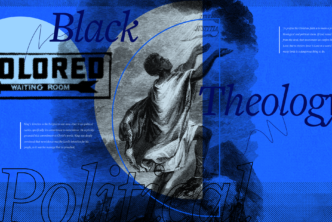I remember the first time I got a Hebrew lexicon. I was so eager to find the “real meaning” of important theological words.
I quickly turned to ברך (barak) and קדשׁ (qadosh) only to find one-word glosses (“bless” and “holy,” respectively) that I had already seen in English Bibles. A part of me felt betrayed. The whole reason I was learning the biblical languages was to find out what I was missing out on by only being able to read English translations. The lexicons were supposed to be the hidden key to a deeper level of meaning.
I assumed that words—perhaps especially biblical words—have fixed abstract meanings that lay waiting to be defined by a lexicon. What I didn’t realize is that all meaning is contextually based. I wasn’t going to find out what קדשׁ meant by a one-word gloss. “Holy” could mean any number of things: “separated,” “perfected,” the sum of the attributes of God, “consecrated,” the numinous or wholly other, etc. Moving forward, I found that the best way to discover the meaning of קדשׁ in a given passage was to read that passage in its context with great care.
I discovered, too, that there’s another level of context I needed to take into account: the cultural. For that level, however, I couldn’t merely read the Bible (though that is an all-important and utterly necessary first step). I needed some help understanding the cultural and historical context in which a given statement of Scripture was made.
Enter the theological lexicon.
Theological Lexicons
These types of lexicons, though not exhaustive, cover the major words that are related to God and religion; and they tend to offer comments about both the textual and cultural contexts in which those words were written. They also discuss relevant matters of history and theology. The words in theological lexicons tend to be abstract (their referent can’t be pointed to in the real world) and therefore require more than a gloss to describe what they mean. For example, ארץ is described easily enough by “land.” But טמא requires something more than the simple gloss of “impure” if we’re going to get a helpful picture of what it means in a given context.
I’ve spent a lot of time consulting all the standard theological lexicons, and would list them in the following order according to their quality and usefulness:
- Theological Dictionary of the Old Testament (TDOT)
- New International Dictionary of the Old Testament and Exegesis (NIDOTTE)
- Theological Lexicon of the Old Testament (TLOT)
- Theological Wordbook of the Old Testament (TWOT)
TDOT
Let’s focus on my top recommendation, TDOT, taking a brief look at what we can learn about קדש from this lexicon.
For starters, TDOT is clear that while the meaning of every derivative of קדשׁ is a religious one, “the focus is never on ethical or moral issues, but rather on an act of consecration, surrender, or dedication to a deity.”
But wait: the focus of “holy” isn’t on morality? That runs counter to the way many Christians use the word “holy.” This is the kind of insight that shouldn’t count as “insight” until you check it out for yourself. You’ll want to use the Bible Word Study tool in Logos, for example, to scan through the uses of קדש in the Old Testament.
Sure enough, the word isn’t used to speak of progressive sanctification, of the comparative level of moral goodness in a given person. Indeed, even things (inanimate objects) are sanctified—like unleavened bread (Lev 6:17), and God even says that “whatever touches the offerings [of unleavened bread] will become holy” (Lev. 6:18 HCSB). “Whatever”? Even an adulterer or a Gentile? Yes—in the sense of “dedication to a deity,” even if it’s an unwilling dedication. TDOT puts it this way: “the holy itself is contagious, prompting caution in dealing with it.”
Likewise, when God says to Israel in Leviticus 22:32, “I am the Lord who sanctifies you,” he was speaking to quite a number of people who were not holy in an ethical or moral sense and who ultimately “died in their sins” (John 8:24). To be “qadosh-ed” in the Old Testament is not necessarily to have obtained more growth in grace than anyone else.
TDOT says that in certain parts of the Old Testament, at least, the meaning of קדשׁ “emphasizes a certain static element…; the impression is that holiness is increasingly understood as a static, enduring characteristic.”
It isn’t necessarily wrong that English-speaking Christians would use the English word “holy” differently than its Hebrew near-equivalent, especially because the New Testament speaks of holiness as progressive in character (1 Thess. 5:23—though it also speaks of it the way the OT does; see 1 Cor. 7:14). But we shouldn’t read our use of the word back into the Old Testament. We should read it in its own cultural, historical, and theological context. And that’s what a resource like TDOT is supposed to help you do.




